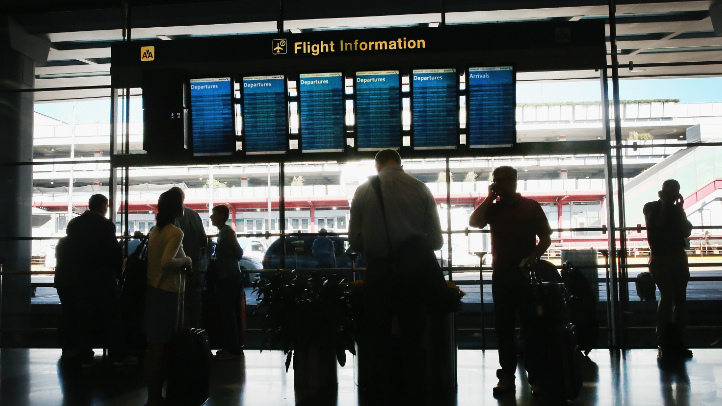Chicago's top doctor says there have so far been no cases of myocarditis reported in young COVID vaccine recipients in the city and that there is currently no link between the condition and coronavirus vaccination.
"The rate of this myocarditis that they've seen has not.. It's not been higher," Chicago Department of Public Health Commissioner Dr. Allison Arwady said during a Facebook Live Tuesday. "It's not been linked [to vaccines], but it's been one of the things that, you know, younger people very occasionally can get. And so, you know, we've advised physicians here if they were to see that to make sure that... they're reporting it."
Arwady's comments come after the U.S. Centers for Disease Control and Prevention's advisory panel noted some reports of a few young COVID vaccine recipients who experienced cases of myocarditis following their vaccination.
Myocarditis is an "inflammation of the heart muscle that decreases the ability of the heart to pump blood normally," according to Harvard Health. Medical experts say the condition is usually caused by viral infections but can also be the body’s reaction to a drug.
Feeling out of the loop? We'll catch you up on the Chicago news you need to know. Sign up for the weekly Chicago Catch-Up newsletter here.
"We've not seen reports of that locally here," Arwady said. "We have asked doctors just to be on the lookout if we were to see it, but this is not like when the [Johnson & Johnson vaccine] was paused. This is sort of, you know, more of just be aware in case we were to see anything, but I don't have any concerns about it based on what we've seen at this point."
Recent data has shown "relatively few reports of myocarditis" following vaccination from mRNA vaccines, the CDC's Advisory Committee on Immunization Practices reported last week. The group did not specify a particular vaccine, though the two mRNA vaccines currently approved for emergency use in the U.S. include both Pfizer's and Moderna's vaccines, with Pfizer being the only one authorized for use in children between the ages of 12 and 17.
According to the preliminary reports, the condition has been seen mainly in adolescents and young adults and has affected males more than females.
Local
The majority of cases have largely been reported after the second dose, typically within four days after vaccination.
The panel notes that "most cases appear to be mild, and follow-up of cases is ongoing," but it did not offer details on how many cases have so far been reported.
"Within CDC safety monitoring systems, rates of myocarditis reports in the window following COVID-19 vaccination have not differed from expected baseline rates," the panel stated. "However, VaST members felt that information about reports of myocarditis should be communicated to providers."
White House press secretary Jen Psaki said Monday during a press briefing that President Joe Biden has been informed of the reported cases and that the administration will continue to advise young people to get vaccinated.
“Our health and medical experts still continue to convey that it is the right step for 12- to 15-year-olds to get vaccinated, that these are limited cases, and that, obviously, the risks of contracting COVID are certainly significant even for people of that age,” Psaki said.
The advisory panel, Arwady and other health experts noted that the reports of myocarditis have not exceed levels normally seen prior to vaccination.
"Because people are getting vaccinated, it may be overlapping," said Dr. Richard Novak, chief of infectious diseases with University of Illinois Health. "Right now, they’re not seeing a greater number of myocarditis than would be expected in a young population.”
In fact, “COVID itself could cause myocarditis in young kids," according to Dr. Wayne Franklin, a pediatric cardiologist with Loyola University Medical Center.
Novak also noted that summer months bring with them a number of viruses that can cause myocarditis.
“There’s a whole host of viruses that are more common in the summertime - we call them enteroviruses - that are associated with myocarditis," he said.
Symptoms of myocarditis include chest pain, fatigue, shortness of breath, and arrhythmias, the Mayo Clinic reports, adding that when children develop myocarditis, they might have other symptoms including:
- Fever
- Fainting
- Breathing difficulties
- Rapid breathing
- Rapid or abnormal heart rhythms (arrhythmias)
Health experts urge both children and adults who may be experiencing any of these symptoms to immediately seek medical attention.
In many cases of myocarditis, the inflamed heart condition can improve on its own, but medical experts at Mayo Clinic say myocarditis can be fatal if not treated immediately. Heart failure, heart attack, stroke, and sudden cardiac death can occur in severe cases.
Mayo Clinic doctors say treatment focuses on the cause of the condition and symptoms, such as heart failure and shortness of breath.
Doctors recommend getting a lot of rest and taking medication to help fight off the infection. Experts say that although antiviral medications are available, they are not proven effective in treatment for most cases of the heart condition.



